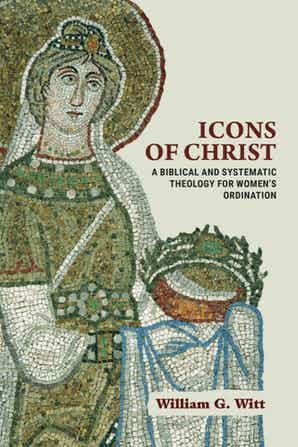This is the first part of a review of William G. Witt’s Icons of Christ: A Biblical and Systematic Theology for Women’s Ordination (Waco, TX: Baylor University Press, 2020).
William G. Witt teaches Theology, Ethics, and Church History at Trinity School for Ministry in Pittsburgh.
His book intends “to make a theological argument for the ordination of women to the ecclesial ministerial office of presbyter … usually referred to in Protestant churches as ‘pastors’ and in Roman Catholic, Orthodox, and Anglican churches as ‘priests’’ (3).
He recognizes that there are four different approaches to women’s ordination: (1) Evangelical Protestanism; (2) traditionalist Catholics; (3) liberal feminist theologians; and (4) orthodox Evangelical and Catholic egalitarians. Importantly, he adds "all represent new theological developments in response to cultural changes of the last couple of centuries” which is to say that everyone is in some sense reactive, but merely retrieving biblical data and ancient traditions.
According to Witt, there are two main species of objections to female ordination. First, Evangelical hierachialists who believe in the authority of men over women; second, Catholic traditionalists who believe that only men can represent Christ in the sacraments.
He wants his approach to the topic not to be an “enclave theology” narrowly focused on one’s own group or tradition, nor an “academic liberal theology” where the Bible is just one artefact among many to consider, but an “ecumenical theology” which “presupposes that every tradition in the church has something valuable to contribute” that reveres Scripture and is respectful of tradition (largely following George Hunsginer).
Witt’s aim is to “make a positive argument for an ecumenical theology of ordination to the presbyterate as an office of Word and Sacrament that justifiably is open to both men and women” (9).




